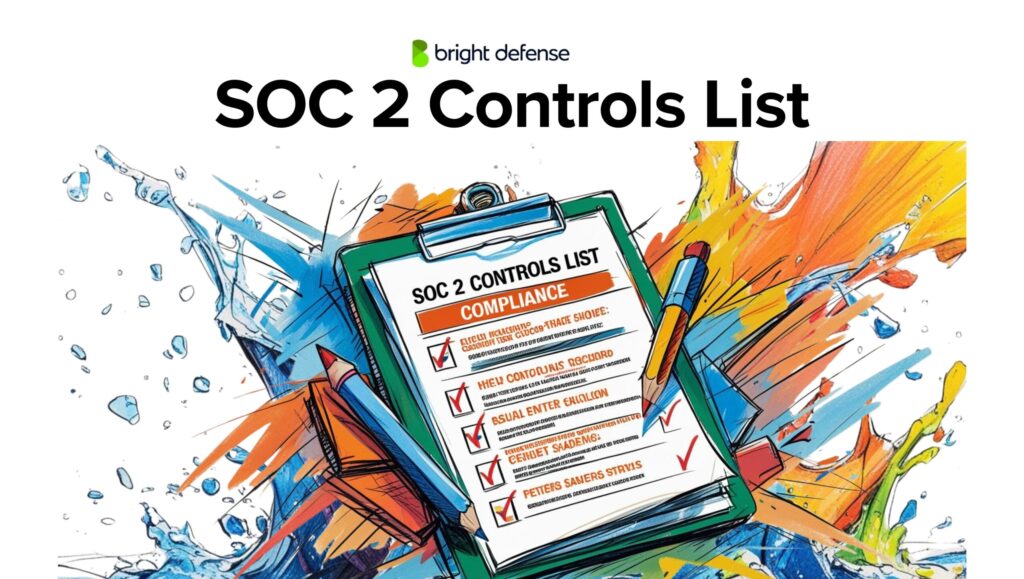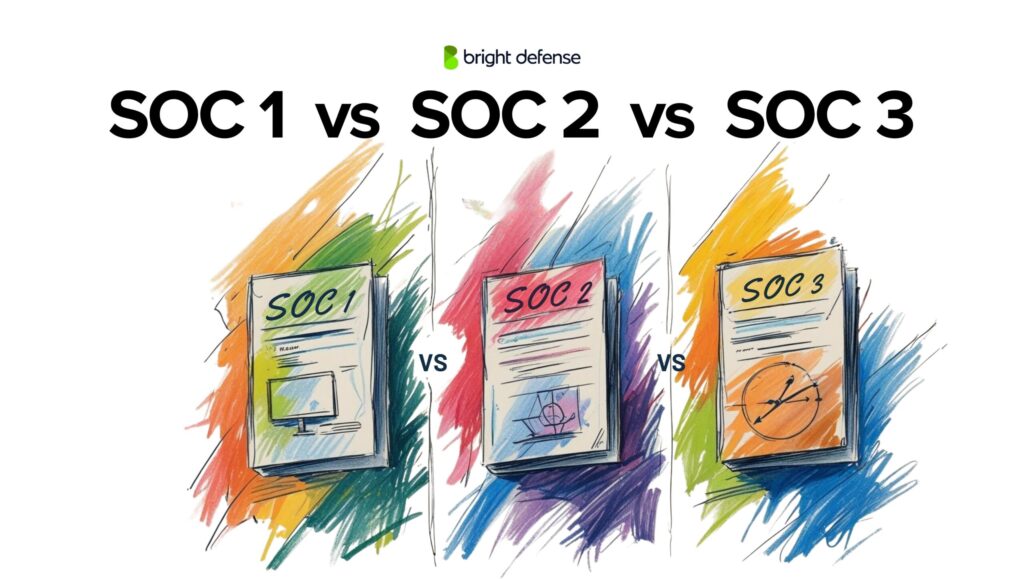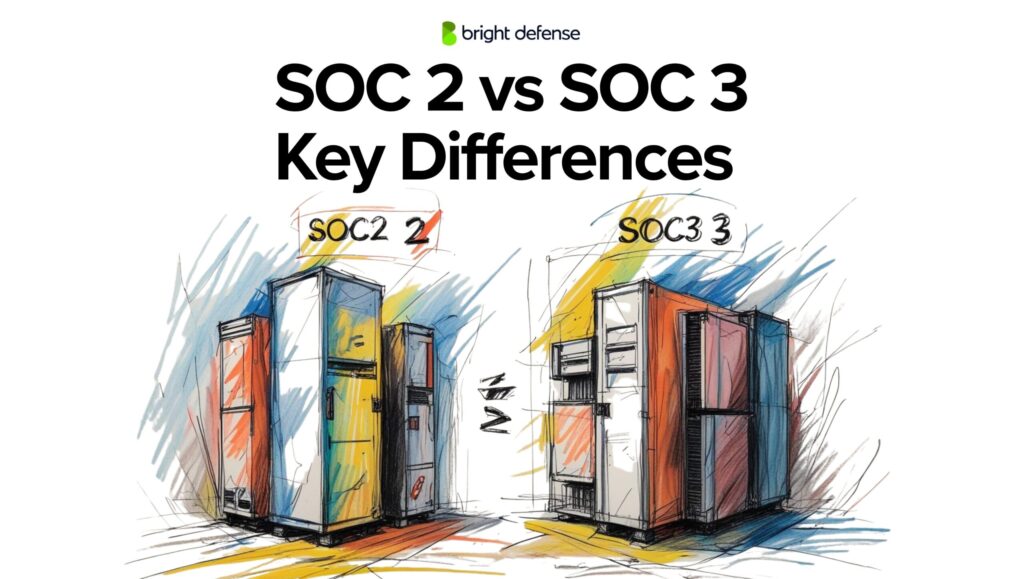
John Minnix - Compliance Strategist
June 28, 2025
Compliance for Startups
In the dynamic and often unpredictable world of startups, cybersecurity compliance is a challenge. 43% of startups report security and compliance as a barrier to starting their business, according to a survey by Vanta. Bright Defense specializes in compliance for startups. We understand that compliance is both a hurdle and a powerful sales tool that signals trust and confidence in the market.
This guide seeks to shed light on compliance for startups and provide you with what you need to know to get started. If you would like to learn more, contact Bright Defense.
Startup Compliance Basics
When embarking on the journey of establishing a startup, understanding the essentials of cybersecurity compliance is essential. This understanding safeguards the business against legal and financial repercussions and fortifies trust with customers and stakeholders.
Cybersecurity compliance refers to adhering to established standards and regulations designed to protect information and data systems from breaches and cyber threats. For startups, this involves implementing specific security protocols, policies, and measures to meet the required regulatory criteria, which vary based on industry, data types handled, and geographical location.

General Compliance Process for Startups
Assessment and Planning
The compliance journey begins with an assessment phase, where startups must identify which compliance regulations and frameworks are relevant to their business. This involves understanding the nature of the data handled, the industry standards, regulatory requirements, and any specific legal requirements based on geographical location.
Building a Security Program
After identifying applicable frameworks, startups build a comprehensive security program. Many base their program on a relevant compliance framework, such as SOC 2, HIPAA, or ISO 27001, as these frameworks provide structured guidelines and best practices that ensure a robust security posture. This program should encompass policies, procedures, and practices that align with the identified compliance requirements and be scalable to adapt to the startup’s growth and evolving cyber threats. The program ensure compliance obligations are being met.
Implementing Tools and Controls
With a security program in place, the next step involves implementing tools and controls to enforce the policies. Specific measures include:
- Security Awareness Training: Educating employees about cybersecurity best practices and potential threats.
- Mobile Device Management (MDM): Ensuring that mobile devices accessing company data are secured and compliant with company policies.
- Endpoint Protection: Using software to protect endpoints like computers and mobile devices from cyber threats.
- Multi-Factor Authentication (MFA): Adding an extra layer of security to verify user identities before granting access to sensitive data or systems.
Monitoring and Documentation
Continuous monitoring of the security infrastructure is vital for ensuring that all tools and policies are functioning as intended. Documentation throughout this process is crucial for demonstrating compliance during audits.

Key Compliance Frameworks for Startups
- SOC 2: Tailored for service providers storing customer data in the cloud, SOC 2 focuses on five trust principles: security, availability, processing integrity, confidentiality, and privacy. Compliance indicates robust data management and protection practices.
- HIPAA: The Health Insurance Portability and Accountability Act is crucial for startups dealing with health-related data. HIPAA compliance mandates stringent protection of patient health information, emphasizing confidentiality and data security measures.
- CMMC: The Cybersecurity Maturity Model Certification (CMMC) is essential for startups working with the U.S. Department of Defense. It requires adherence to a range of cybersecurity standards to protect sensitive defense information.
- NIST Frameworks: The National Institute of Standards and Technology offers frameworks like the NIST SP 800 series, guiding comprehensive cybersecurity practices. Although not always mandatory, they are highly respected and followed across various industries.
- ISO 27001: This international standard outlines requirements for an information security management system (ISMS). It’s widely recognized and applicable across various sectors, focusing on risk management and security controls. If you are interested in learning more about this framework for your startup, check out “ISO 27001 for Startups“.

How Do I Determine What Regulatory Requirements My Startup Must Adhere To?
When it comes to understanding what regulatory requirements your startup must adhere to, the process involves a thorough evaluation of several key aspects of your business. It’s important to approach this in a compliant manner, ensuring that all necessary regulations are considered and met. Here’s a step-by-step guide to determine your startup’s regulatory obligations:
- Identify the Nature of Your Business: Understand the industry your startup operates in, as different sectors have specific compliance requirements. For instance, a healthcare-related startup might have different data protection obligations compared to a fintech company.
- Understand the Data You Handle: Assess the type of data your startup collects, processes, and stores. Regulations like GDPR in Europe or CCPA in California focus heavily on personal data protection. If your startup handles sensitive information, data protection laws are particularly pertinent.
- Geographical Consideration: Where your startup is based and where your customers are located can influence the regulatory requirements. For example, operating in the EU requires adherence to GDPR, regardless of where your startup is originally based.
- Industry-Specific Regulations: Some industries are governed by specific regulations. For instance, startups in the healthcare sector must be cognizant of HIPAA in the United States, while financial institutions may need to comply with regulations like SOX or FINRA.
- Consult with Experts: Given the complexity of legal and compliance landscapes, consulting with legal experts or compliance consultants like Bright Defense can be invaluable. They can provide tailored advice specific to your startup’s operations and the jurisdictions you operate in.
- Research and Education: Regularly educate yourself and your team about the evolving regulatory landscape. Attending workshops, webinars, and following industry news can help keep your startup abreast of any changes in compliance requirements.
- Engage in Compliance Communities: Joining forums or online communities focused on regulatory compliance can provide insights and practical advice from peers and experts who have navigated similar challenges.
By thoroughly analyzing these aspects, startups can better understand the regulatory requirements applicable to them and ensure they operate in a compliant manner. Remember, compliance is not a one-time activity but an ongoing process that requires continuous attention and adaptation as your startup grows and as regulations evolve.

Introducing Continuous Compliance
Continuous compliance goes beyond achieving baseline standards at a single point in time. It involves regularly monitoring, updating, and verifying that cybersecurity practices align with evolving regulations and threats. This dynamic approach ensures that a startup remains compliant, even as new challenges and regulatory changes arise.
Benefits of Continuous Compliance
- Risk Mitigation: Regularly updated compliance practices help identify and address vulnerabilities, reducing the risk of data breaches and cyber-attacks.
- Market Credibility: Demonstrating ongoing compliance efforts can enhance a startup’s reputation, building trust among customers, partners, and investors.
- Operational Efficiency: Continuous compliance encourages the integration of security into daily operations, leading to more streamlined and efficient business processes.
- Regulatory Readiness: With continuous compliance, startups are better prepared for audits and regulatory reviews, minimizing disruptions to business operations.
Additional Considerations
- Data Privacy Laws: Startups should be aware of regional data privacy laws like GDPR in the EU, CCPA in California, and others, ensuring compliance with these regulations if they apply.
- Industry-Specific Regulations: Depending on the industry, there may be additional compliance requirements to consider, such as FERPA in education or PCI DSS for companies handling credit card transactions.
By understanding these basics of continuous cybersecurity compliance, startups can create a strong foundation for secure operations, building trust with their customers and navigating the complexities of the digital business world with confidence.

Top 10 Things Startups Should Know About Compliance
- compliance is an Investment, Not Just a Cost: Viewing compliance as an investment rather than a mere expense can change how startups approach this process. Building an effective compliance program early in your company’s lifecycle can accelerate sales cycles and allow you to avoid reputational risk from a data breach.
- Understand Your Specific Compliance Needs: Not all compliance frameworks apply to every startup. Identify the ones relevant to your industry, such as SOC 2 for data security, HIPAA for health information, or GDPR for European customers’ data.
- Start Compliance Processes Early: Incorporating compliance into your business model from an early stage can simplify processes later on. Starting with a compliance-minded approach is easier and more cost-effective than retrofitting your operations.
- Employee Training is Key: Regular training for employees on compliance issues, especially regarding data handling and privacy, is crucial. Human error often leads to breaches, so a well-informed team is your first line of defense.
- Data Security is Central to Compliance: In the digital age, data security is at the heart of most compliance standards. Implementing robust cybersecurity measures is essential, regardless of the specific regulations you are adhering to.
- Documentation is Crucial: Documenting all compliance-related processes, policies, and incidents is fundamental. This not only helps in audits but also ensures you have a clear trail of your compliance efforts.
- Regular Audits and Assessments: Conducting regular internal audits and risk assessments can help identify potential compliance issues before they become problematic. It also demonstrates a commitment to maintaining standards.
- Compliance is Dynamic, Not Static: Regulations and standards evolve, so your compliance strategy should be flexible and adaptable. Stay informed about changes in compliance requirements and adjust your practices accordingly.
- Leverage Technology for Compliance: Many technological solutions can help manage compliance tasks, from data encryption to compliance management software. These tools can streamline the process and reduce the burden on your team.
- Compliance Builds Trust and Opens Opportunities: Achieving and maintaining compliance can be a significant trust signal to customers, partners, and investors. It shows that your startup values data security and ethical practices, opening doors to new opportunities and markets.
Understanding these key aspects of compliance can guide startups in developing effective strategies to meet regulatory demands while building a strong foundation for business growth and customer trust.

Conclusion
Building a robust security program based on a relevant compliance framework provides a structured approach to safeguarding sensitive data and systems. Specific measures like security awareness training, mobile device management, endpoint protection, and multi-factor authentication fortify a startup’s defense against evolving cyber threats.
The journey to achieving and maintaining compliance might seem daunting, especially considering the process’s varying timelines and continuous nature. However, the investment in compliance pays dividends in terms of enhanced security, improved customer confidence, and the avoidance of costly breaches and legal penalties.
Ultimately, viewing compliance not as a one-time checklist but as a continuous commitment to cybersecurity excellence positions startups for sustainable growth and success in an increasingly interconnected and digital-first business world. By prioritizing compliance, startups protect themselves and build a foundation of trust that is critical in today’s competitive market.
Startup Compliance From Bright Defense
If your startup or small business needs compliance services, Bright Defense can help. We were founded by serial entrepreneurs. We understand how hard it is to get your startup off the ground and the constraints on your time and budget.
Bright Defense protects our clients from cyber threats through continuous compliance. Our team of CISSP and CISA-Certified experts will develop and execute a cybersecurity plan to meet frameworks including SOC 2, CMMC, and HIPAA. Our monthly service includes our compliance automation platform that reduces costs and increases efficiency. Additionally, we offer security assessments, managed security awareness training, virtual CISO consulting engagements, mobile device management, endpoint protection, and more.
Get started on your continuous compliance journey today with Bright Defense!

Compliance for Startups – Frequently Asked Questions
What is Regulatory Compliance and Why is it Important for Startups?
Regulatory compliance refers to laws, guidelines, and specifications relevant to a business’s operations. For startups, this means ensuring that their practices meet the standards set by applicable regulations. It’s crucial for maintaining corporate governance, managing risk effectively, and establishing credibility in the marketplace.
How Can a Startup Determine its Compliance Obligations?
To determine compliance obligations, startups should first understand the nature of their business and the data they handle. This involves assessing their industry, the type of customers they serve, and where they operate. Consulting with legal experts and utilizing compliance resources can also help identify applicable regulations. Bright Defense can provide you the guidance to get started.
What are the Key Steps to Achieve and Maintain Compliance Status?
Achieving and maintaining compliance status involves several key steps: identifying relevant regulations, building a comprehensive security program, implementing necessary controls, continuous monitoring, and undergoing regular audits. This process helps in risk management and ensures ongoing compliance with changing regulations.
How Does Compliance Relate to Corporate Governance and Risk Management?
Compliance is a core aspect of corporate governance, ensuring a business operates within legal and ethical boundaries. It is integral to risk management as it helps identify potential risks and establishes controls to mitigate them, protecting the startup from legal issues and reputational damage.
Why is it Important for Startups to Ensure Compliance?
For startups to avoid legal penalties, secure customer trust, and compete effectively in the market, ensuring compliance is essential. Compliance certifications also serve as a badge of trust, showcasing a startup’s security and data protection commitment.
Do Compliance Certifications Vary for Different Industries?
Yes, compliance certifications vary based on industry and the data type handled. For instance, HIPAA compliance is crucial for startups dealing with health information, while other industries may require adherence to frameworks like SOC 2, CMMC, or ISO 27001.
Why Should Many Startups Prioritize HIPAA Compliance?
Many startups should prioritize HIPAA compliance if they handle protected health information (PHI). Being HIPAA compliant fulfills legal requirements and safeguards sensitive health data, which is crucial for maintaining trust and credibility in the healthcare sector.
What are the Potential Risks of Non-Compliance for a Startup?
Non-compliance can expose startups to potential risks like legal penalties, financial losses, and reputational damage. In severe cases, it can lead to business closure. Therefore, understanding and adhering to applicable regulations is critical for a startup’s survival and growth.
How Can a Small Business Stay Compliant with Limited Resources?
Small businesses can remain compliant by focusing on the most critical compliance aspects relevant to their operations. Utilizing cost-effective compliance tools, seeking expert advice, and prioritizing continuous education and awareness among employees can help maintain compliance even with limited resources.
What Resources are Available to Help Most Startups with Compliance?
Bright Defense is a great resource for startups to begin their continuous compliance journey. Most startups can leverage various resources for compliance, including online guides, compliance software tools, consultancy services, and workshops. These resources can provide valuable insights into the compliance process and help startups navigate the complexities of various regulations.
Get In Touch



